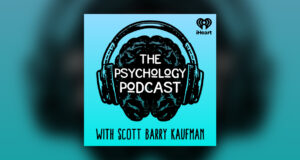
Negative thinking is something we all experience from time to time. Whether it’s doubting ourselves before a big presentation, imagining the worst in uncertain situations, or feeling defeated by life’s challenges, these thoughts can quickly become a regular part of our inner dialogue. While occasional negativity is natural, habitual negative thinking can have a profound impact on our mental well-being, relationships, and even our physical health.
The effects of negative thinking are more far-reaching than we might realize. Persistent negative thoughts can trap us in a cycle of low self-esteem, increased anxiety, and self-doubt, making it harder to overcome obstacles and pursue our goals. Research shows that when we dwell on the negative, we become more stressed, less resilient, and less likely to see positive solutions to our problems. Over time, this pattern can contribute to depression, loneliness, and other mental health issues.
Understanding the power of negative thinking—and learning strategies to break free from it—is essential for building a healthier, more optimistic outlook on life. In this post, we’ll explore why we’re often drawn to negative thoughts, how they shape our reality, and ways to develop a more balanced, positive mindset.
Inner dialogue
We all have constant inner dialogue running through our minds. We pay attention to some of it, but other thoughts are so automatic that we don’t even realise that we think them. They occur on an unconscious level and can affect the way we see ourselves and the world. Our inner dialogue affects what we feel we are capable of, what we feel is possible for us in our lives and can make a life successful or a complete failure. Yup – your thoughts really are that powerful so it is a very good idea to watch what you are telling yourself day after day and filter out the stuff that is no longer useful, valuable or working for you.
Inner dialogue is influenced by our upbringings and past experience and tends to be more negative in an effort to keep us safe. Thing is, we are far safer than our brains would have us believe. We no longer face the harsh reality of life outdoors, roaming the plains for food and avoiding predators as our ancestors did. Our brains however, interpret modern day stress in the same way as it used to – it sees a threat as a threat no matter whether is it a lion in front of us (our ancestors) or a pile of unpaid bills (modern day stress). The same parts of the brain are activated leading to defensive, anxious behaviour. Old messages from our parents or teachers etc may have become so automatic that we have taken on their opinions of us as fact and carry these ideas around with us, allowing them to define us when they don’t have to.
Learn to be more aware of your inner dialogue. You can learn to find alternatives to negative thoughts by asking yourself these questions:
-
What are the facts?
What evidence do you have to support what you think? What evidence is there against it? The fact that you think something doesn’t make it true. Are there any small things you are ignoring as not very important?
2. What possible alternatives are there?
What would you think if you were more confident? Or what did you think at a time when you were more positive? How might someone else view the situation? What would you say to another person who was thinking in this sort of way? When you aren’t feeling this way. do you think about the situation differently?
3. What is the worst thing that could happen?
What is the best thing that could happen or the best way of seeing things? What is the most realistic or most likely to be right? If the thought is true, will it still matter in five years from now?
4. What errors are you making in your thinking?
Are you jumping to conclusions? Are you condemning yourself on the basis of one event? Are you concentrating on your weaknesses and forgetting your strengths? Are you thinking in all or nothing terms? Are you taking responsibility for something that is not your fault? Are you trying to mind read what others are thinking?
Use the above 4 questions to help you challenge your negative thinking. They are a great way to level out your thinking and add perspective. The more you do this, the more contented you will be!
Mandy X




